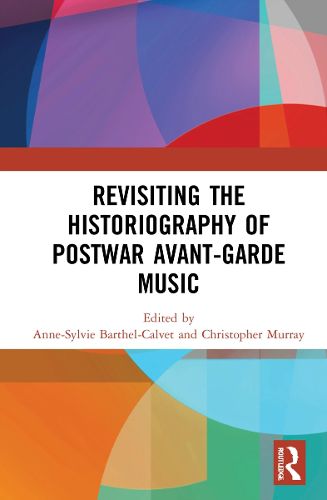Readings Newsletter
Become a Readings Member to make your shopping experience even easier.
Sign in or sign up for free!
You’re not far away from qualifying for FREE standard shipping within Australia
You’ve qualified for FREE standard shipping within Australia
The cart is loading…






This collection of essays delves into the historiographical traditions that have dominated how the stories of European postwar avant-garde music are told, seeking to approach commonplaces of that history writing from new perspectives. The contributors revisit subjects as varied as the impact of long-playing records on the emergence of open works, Messiaen's interest in non-European musical traditions, Xenakis's turn to information theory, Kagel's strategic invention of a new genre, Berio's dependence on funding from American foundations, and the ways in which figures like Boulez, Stockhausen, Pousseur, and Nono constructed their musical ancestries. Leading experts in their respective fields, the volume's authors have sought to rethink the historiography of European experimental music of the 1950s, 1960s, and 1970s in ways that resituate that small but influential milieu in broader historical and cultural contexts. In doing so, they suggest new directions and insights for students and specialists of twentieth-century music and music historiography.
$9.00 standard shipping within Australia
FREE standard shipping within Australia for orders over $100.00
Express & International shipping calculated at checkout
This collection of essays delves into the historiographical traditions that have dominated how the stories of European postwar avant-garde music are told, seeking to approach commonplaces of that history writing from new perspectives. The contributors revisit subjects as varied as the impact of long-playing records on the emergence of open works, Messiaen's interest in non-European musical traditions, Xenakis's turn to information theory, Kagel's strategic invention of a new genre, Berio's dependence on funding from American foundations, and the ways in which figures like Boulez, Stockhausen, Pousseur, and Nono constructed their musical ancestries. Leading experts in their respective fields, the volume's authors have sought to rethink the historiography of European experimental music of the 1950s, 1960s, and 1970s in ways that resituate that small but influential milieu in broader historical and cultural contexts. In doing so, they suggest new directions and insights for students and specialists of twentieth-century music and music historiography.